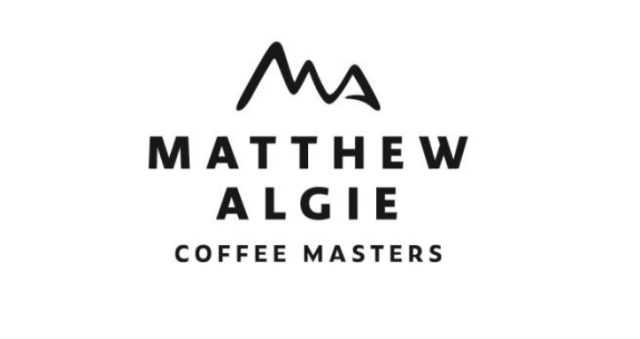GLASGOW, UK — Matthew Algie, which last year marked its 160th anniversary, supplies coffee, machines, equipment, and training to thousands of organisations throughout the UK and Ireland across industries including hospitality, education, and the public sector, has made the move as part of its ambitious plan to achieve Net Zero by 2040.
As is the case for most coffee producers, supply chain emissions account for more than 90% of Matthew Algie’s carbon footprint. The Net Zero Supply Chains Pilot Project is an early and central part of measures to reduce the figures.
The two-year exploratory £50,000 project in collaboration with civil society organisation Solidaridad, is currently in its early stages, and is part of a partnership with coffee farmers on the ground in the coffee producing Central American nation aimed at introducing measures that will reduce emissions and the environmental impact of their operations. It will also help producers measure their carbon footprint, protect forests, and improve gender equality across their operations.
Matthew Algie’s sustainability team, based in Glasgow, is monitoring progress throughout the project seeking to learn from this new way of collaborating with suppliers. It’s hoped that will ultimately help create a blueprint for decarbonisation to be rolled out across coffee producers throughout the company’s global supply chain.
So far, data collection from 100 producers has been completed and initial findings have been analysed. Training has also been carried out with 45 technical staff and producers covering climate change topics, including carbon footprinting, while leadership training has been provided to 50 young coffee farmers, specifically young women.
Amy Oroko, Sustainability Manager at Matthew Algie, is leading the project. She said: “Decarbonising the supply chain is probably the biggest challenge in any industry and organisation’s journey toward Net Zero, and this project is a crucial step in our ambitions to achieve it by 2040. We are studying the impact of the measures we introduce, and the support required, and from there we will be able to formulate plans that will enable other cooperatives in Honduras and other coffee supplying nations to make their operations more sustainable.
“Working with our suppliers to accurately measure our supply chain carbon emissions is a key first step in this journey because it will allow us, and them, to move away from estimates and get a better idea of the emissions hotspots that need to be addressed.
“Helping our suppliers become more sustainable is one of the top priorities on our sustainability agenda, but we haven’t yet had the data to analyse what steps will be effective in delivering it. We are still in the early stages, but our findings so far are encouraging.
“We will need to evolve as we look to new regions and areas, where different climates and technologies will affect our approach, but we are making exciting progress, and I look forward to the impact we can make on our operation and the wider industry.”
Marvin Omari Suazo, a member of the Capucas cooperative taking part in this project, said: “This project is a helpful way to change our way of seeing coffee and how we produce it.
“Though we always heard about climate change we thought that we were not part of this problem and that only big industries pollute the planet and that is why it is getting warmer.”
“[Selling carbon credits] will support the implementation of improved agricultural practices, since these are activities that require an investment to improve the production system.”
The supply chain decarbonisation project is one of several Matthew Algie initiatives as part of its award-nominated Net Zero 2040 journey that also includes changes closer to home at its Lawmoor Road roastery in Glasgow. The roaster, nominated at the Glasgow Business Awards 2024 award for its work on Net Zero, has recently undergone a multi-million-pound roastery upgrade for which it won the Engineering Excellence Award 2024 from Scottish Engineering.
The upgrade has enabled the company to prepare for transitioning to recyclable coffee packaging. They have also reduced the length of their coffee bags by 7% and transitioned to larger one-tonne bags for incoming green coffee to increase transport efficiency.
In the meantime, Matthew Algie is also on target to hit a number of sustainability goals by 2025. The team is on track to reduce food waste by 50%, have 20% recyclable coffee packaging, have 10% of the fleet as electric vehicles with electric vehicle charging provision, see a 10% decrease in car and van miles, make sure 90% of coffee produced has at least one certification and have all staff trained in environmental issues.
Eduarda Cristovam, Director of Coffee, Quality and Sustainability at Matthew Algie said: “We recognise green coffee is one of our biggest contributors to global emissions. Also, transitioning from a methodology of carbon neutral to Net Zero is challenging, especially when it comes to training colleagues and suppliers. This project aims to transition the co-op to lower-carbon, sustainable farming and to create a source of carbon credits for farmers, increasing their income.”
She added: “As a Scottish-based business we want to lead by example in the UN Race to Net Zero. We have committed to reducing our Scope 3 emissions by 60% by 2035, and our goal is to set an industry standard and influence our suppliers to make their own positive changes. We recognise how crucial it is that all Matthew Algie staff play their part in our Net Zero plan and understand the importance of their roles in delivering it.
“The shift to Net Zero is necessary for the coffee industry as a whole, and as a company with a proud history of leading the way on sustainability, we aim to be at the forefront of driving the necessary change.”
To find out more about Matthew Algie’s work on sustainability, visit matthewalgie.com/sustainability/.















